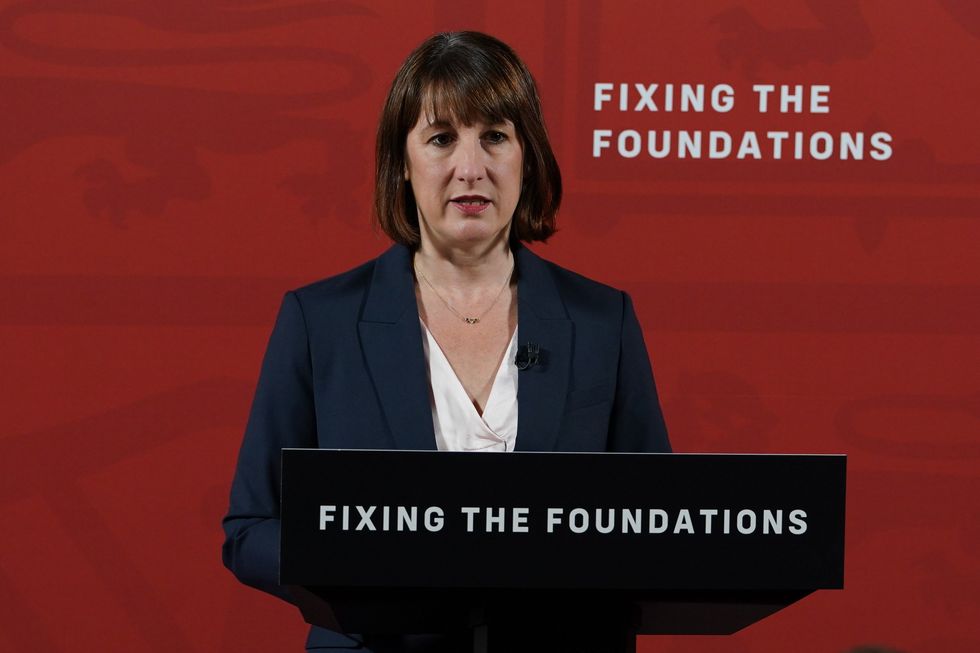Rachel Reeves has been warned reducing the 40 per cent tax relief for higher earners would disproportionately hit public sector workers
Reuters
Ahead of the upcoming October budget the Chancellor will receive her second round of OBR forecasts
Don't Miss
Most Read
Trending on GB News
Chancellor of the Exchequer Rachel Reeves is set for a strenuous 24 hours as she prepares for her second round of pre-budget OBR forecasts on Tuesday.
It comes ahead of the Autumn budget set to be delivered on October 30 which will involve decisions on tax, spending and benefits.
The Office for Budget Responsibility (OBR) assesses the health of the UK’s economy and usually releases its reports alongside big government events such as the Budget and Autumn Statement.
Before these announcements, the government gives the OBR details of its plans to raise or lower taxes and how it intends to spend public money.
 Chancellor Rachel Reeves is due to deliver her first budget on October 30PA
Chancellor Rachel Reeves is due to deliver her first budget on October 30PAThe OBR checks this information and makes economic forecasts assessing whether the government is likely to meet the rules it has set for managing the economy.
Reeves is expected to abandon plans of cutting the tax relief pension contributions after officials warned her it could unfairly penalise up to a million teachers, nurses and other public sector workers.
Senior Treasury officials are understood to have said to the Chancellor that reducing the current 40 per cent level of tax relief on higher earners would disproportionately hit those on relatively modest incomes working for the state.
For example, a nurse earning £50k could face an additional tax bill of up to £1,000 a year.
A government source also raised concerns over Labour’s decision to drop plans to reintroduce a cap on the lifetime allowance on pension savings hitting junior doctors.
They said: “The government will take into account the impact on public sector workers.”
This means Reeves is left with limited room to fill what she described as a £16 billion “black hole” in public finances inherited from the previous government.
On Wednesday, the chancellor is expected to submit her “major measures” to the OBR.
There are several changes Reeves is understood to be looking at to fill the gap in public finances including changes to capital gains tax, which is currently charged at a lower rate than income tax.
The Chancellor is also understood to be looking at other potential revenue-raisers from pension reform.
This could include reducing the amount of money people are allowed to take out of their pension pot tax free when they retire, which is currently set at £268,275.
Reeves is also looking at rules which allow some people to pass on their remaining pension pots tax free when they die.
LATEST FROM MEMBERSHIP:
However, there have also been warnings that reducing tax relief on pension contributions could disproportionately impact public sector workers as public sector defined benefit pensions tend to be more generous than pensions in the private sector.
She is also looking at closing loopholes on inheritance tax, which could raise £4 billion for the Treasury, according to the Institute for Fiscal Studies think tank.
The Institute for Fiscal Studies said the Chancellor has a difficult task ahead of her, having “given herself little room for manoeuvre.”
“Many of the tools best suited to the task of significant revenue-raising have been put out of reach,” added IFS economist Isaac Delestre.







